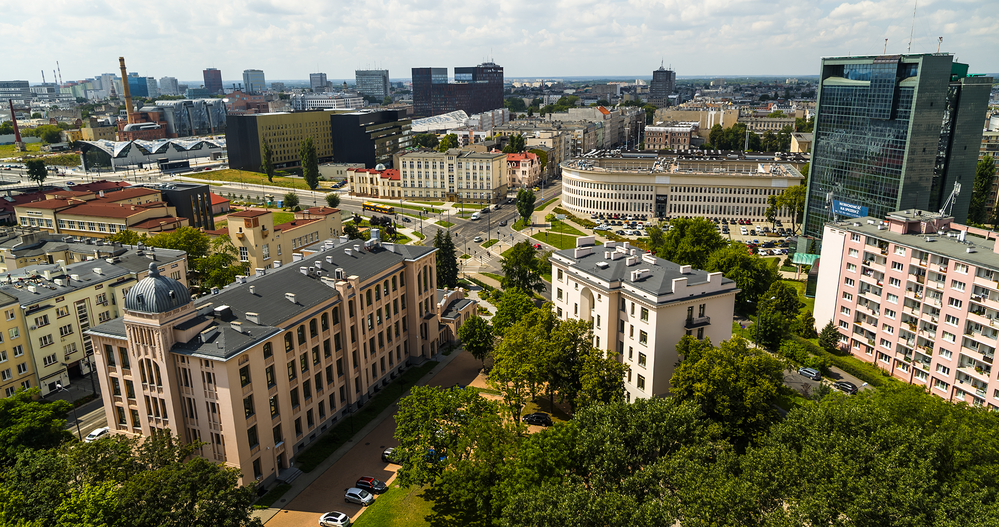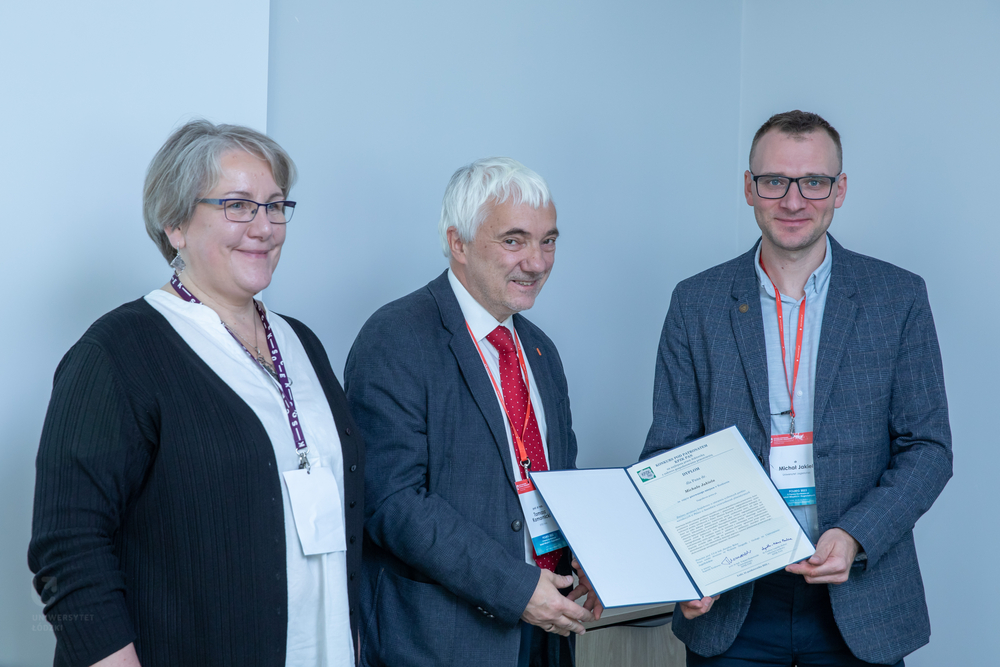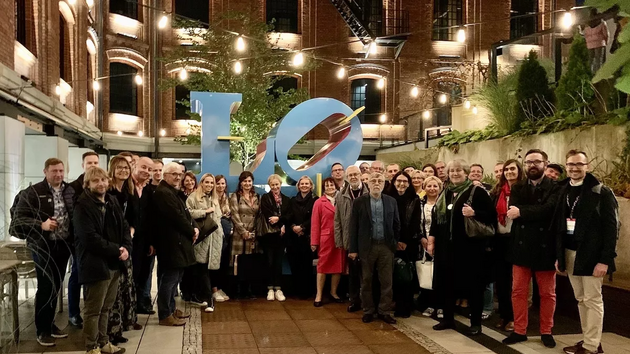Spatial development of each country, region and city is a complex multidimensional issue, the face of which has been changing over the years. An increased interest in the local and regional dimension of development has been observed for a long time. It becomes the foundation of the organisation of life at the economic and political levels. Therefore, scientists and practitioners redirect their attention from issues such as "agglomeration" or "new industrial spaces" to the issues of "networks", "local actors" and "specific resources". Thanks to this, they explore the importance of intangible, non-economic factors, which, determine the contemporary processes of socio-economic development.
 Photo: Maciej Fornal, Promotion Centre, University of Lodz
Photo: Maciej Fornal, Promotion Centre, University of Lodz
At the same time, researchers shift their interests from such concepts as "region" and "regional development" to the concepts of "territory" and "territorial development". This is due to the fact that in the classical theories of development, space was a secondary factor and a static place for the location of economic entities. It was perceived mainly as a physical space and defined through the prism of the location of resources, costs of doing business, location of labour or transport costs. However, today scientists increasingly look at the role of space in development in a completely different way. The key concept for them is "territory", which is defined through the prism of relations and activity of local actors as well as social and institutional capital. The territory is also a source of many intangible resources, such as information, knowledge and innovation. It is a place where resources and development capabilities of economic entities are created.[1]
As emphasised by the POLREG 2022 Coordinator, dr hab. Aleksandra Nowakowska, UL Professor:
Our goal was to deepen the discussion on territorial transformations, conditions and challenges in the context of dynamic changes taking place in the domestic and international environment. During the conference, the topic of development territorialisation was discussed and the results of research in this area were presented.
Plenary session "Rozwój terytorialny — siła w pluralizmie podejść i perspektyw teoretycznych” [Territorial development – strength in the pluralism of theoretical approaches and perspectives] was opened by dr hab. Aleksandra Nowakowska, UL Professor with her speech entitled “Terytorialne podejście do rozwoju” [Territorial Approach to Development]. The session was closed by prof. dr hab. Marcin Wójcik with a presentation entitled "Place Matters! — Wyzwania rozwoju lokalnego” [Place Matters! – The Challenges of Local Development].
During the thematic sessions, the University of Lodz scientists discussed the following topics:
- mgr Ewelina Stasiak
Future of local governments from the perspective of changes in the rules of the game concerning local government elections
- Dr Jakub Zasina & Dr Konrad Żelazowski
Public accommodation on a campus or private accommodation outside it? Studentification from the perspective of Lodz
- Dr Ewa Boryczka
The significance of intangible cultural heritage in revitalisation processes
- Dr Ewa Lechowska
Resilience of cities to the aging of the population in terms of spatial (in)accessibility
- dr hab. Mariusz Sokołowicz, UL Professor & dr hab. Agnieszka Kurczewska, UL Professor
The process of emerging citizen entrepreneurship. Cases from Poland
- dr hab. Mariusz Sokołowicz, UL Professor & representatives of CoopTech
Lessons from practice: digital cooperatives as a form of citizen entrepreneurship
The process of emerging citizen entrepreneurship. Cases from Poland
Presentation of the award for the best doctoral thesis in the field of spatial management
 Photo: Maciej Andrzejewski, Promotion Centre, University of Lodz
Photo: Maciej Andrzejewski, Promotion Centre, University of Lodz
During the conference, the Committee for Spatial Economy and Regional Planning, Polish Academy of Sciences awards for the best doctoral theses in the field of spatial management were also presented. This year's laureate was Dr Michał Jakel from Jagiellonian University, who was awarded by the competition jury for his dissertation entitled "Zmiany struktury krajobrazu w otoczeniu wybranych parków narodowych w Polsce w kontekście uwarunkowań planistycznych” [Changes in the landscape structure in the vicinity of selected national parks in Poland in the context of planning conditions]. The winner collected the award from Prof. dr hab. Tomasz Komornicki - President at the Committee for Spatial Economy and Regional Planning, Polish Academy of Sciences.
This year's edition of POLREG was organised by the Department of Regional Economics and Environment at the Faculty of Economics and Sociology, University of Lodz, cooperating on this project with 5 universities from the country and the Committee for Spatial Economy and Regional Planning, Polish Academy of Sciences (KPZK PAN).
More information on the conference can be found on the website of POLREG 2022.
Edit: Promotion Centre, University of Lodz
[1] Nowakowska A. (2015). Zintegrowane plany rozwoju – w stronę terytorialno-funkcjonalnego podejścia do rozwoju jednostki terytorialnej [w:] A. Nowakowska (red.). Nowoczesne metody i narzędzia zarządzania rozwojem lokalnym i regionalnym. [Integrated development plans – towards a territorial-functional approach to the development of a territorial unit [in:] A. Nowakowska (ed.). Modern methods and tools for local and regional development management] Łódź: Wydawnictwo Uniwersytetu Łódzkiego, ss. 11-37. DOI: 10.18778/7969-530-0.02

